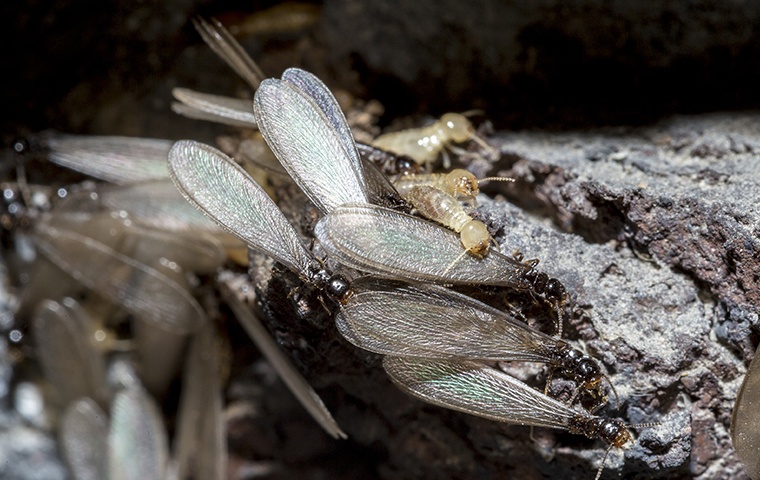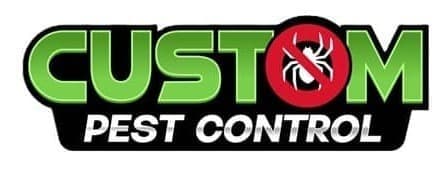What are termites?
Termites are wood-destroying insects that live and work together in large groups. The most common species of termite living in our Madison County, Alabama service area, and across the country is the Eastern subterranean termite. These termites nest in the soil below the ground and feed on pieces of wood and other items made out of cellulose. Out in nature, termites are beneficial, helping to break down materials made of cellulose, releasing their nutrients back into the soil. However, when termites decide to nest near our homes and find their way inside, they become destructive and unwelcome pests.

Termite colonies are split into three castes: worker, soldier, and reproductive (kings and queens). Worker termites are the most numerous members of a colony and the members responsible for gathering food. They are blind and have soft, white, wingless bodies. The soldiers look like the workers but have strong jaws and elongated yellow heads. The reproductives are dark brown to black, have wings, and are the largest-sized members of the colony.
Are termites dangerous?
Termites pose no direct danger to people, but they are destructive pests that cause costly and extensive damage to any home or business they invade. Over time, termites are capable of inflicting enough damage to affect the structural integrity of any building. To make matters worse, most homeowners insurance does not cover termite damage. Termites cause billions of dollars in damage across the country every year.
Why do I have a termite problem?
Termites are on your property because it is providing them with a suitable place to nest that is near sources of food. Termites feed on things like decaying trees, soil, piles of decomposing leaves, and old woodpiles. Termites nesting on a property often accidentally find their way into homes through cracks in the foundation or through pieces of wood that are making direct contact with the soil.
Signs of a termite problem inside of your home include buckling wood, blistered paint, warped windows and doors, and swollen, spongy floors. Termites build mud tubes along the ground, foundation walls, and basements walls to travel back and forth in while maintaining their moisture needs and staying hidden from predators. Discovering mud tubes on your property or in your home is another sign of an infestation.
Where will I find termites?
You will find Eastern subterranean termites inside their underground nests, or in the pieces of wood they are feeding on. They do not nest inside the wood they are feeding on; instead, they travel back and forth from their nest to food sources each day.
Inside homes and commercial structures, termites move behind walls and under floors to feed on structural wood in hard to reach areas. The initial infestation usually occurs at ground level, where they invade the wood around pipes or wood previously damaged by water.
How do I get rid of termites?
Get rid of termites by partnering with the trusted experts at Custom Pest Control. For over 20 years, we have been helping home, and business owners maintain pest-free properties. If you are looking for a personal approach to pest control, look no further.
At Custom Pest Control, we customize our home pest control programs to meet the unique needs of each of our customers. Let our family protect your family from North Alabama’s toughest pests! For more information about our termite control services in Northern Alabama, reach out to Custom Pest Control, and speak with one of our friendly professionals today.
How can I prevent termites in the future?
The best way to prevent problems with termites is to partner with a professional and implement the following prevention tips in and around your Alabama home:
-
Remove fallen trees, tree stumps, leaves, and woodpiles from your yard that termites can feed on.
-
Create a barrier of crushed rock that is at least 18 inches between mulch, soil, or grass and your home’s foundation.
-
Keep your basement dry by using dehumidifiers.
-
Repair leaking pipes.
-
Remove water-damaged wood from your home.
-
Make sure gutters are clear of debris and directing water away from the outside of your home.
-
Seal up cracks in your foundation.
-
Place weatherstripping around windows and doors.
-
Replace mulch with a non-organic option.
